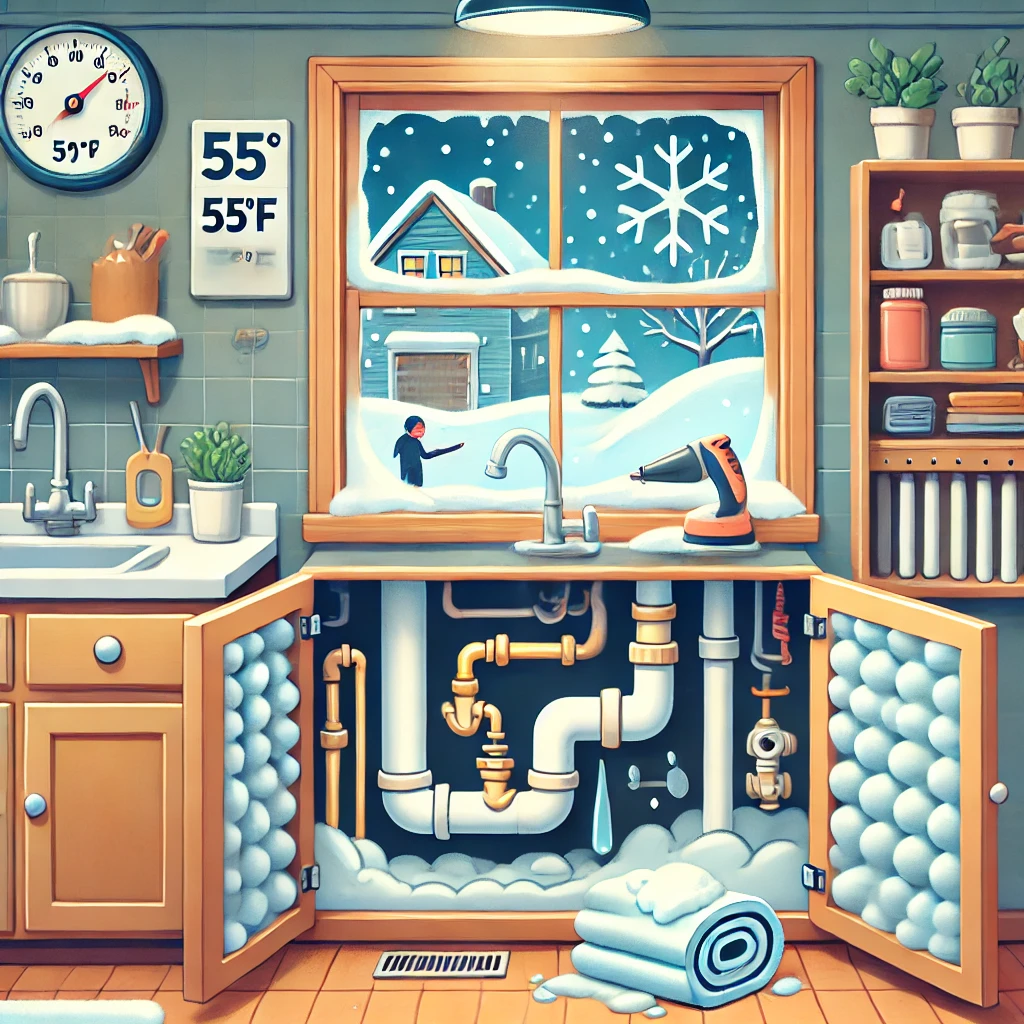As winter temperatures plummet, homeowners face the risk of frozen pipes, a common issue that can lead to costly damage and repairs. With some simple preventive measures and quick action, you can safeguard your home during the coldest months of the year. Here’s what you need to know to keep your water flowing and your property safe.
Preventive Measures: Stop the Freeze Before It Starts
- Insulate Pipes: Pipes in unheated areas such as basements, attics, or garages are most vulnerable. Wrap them with foam pipe insulation to reduce the risk of freezing.
- Seal Drafts: Cold air can seep into your home through gaps around windows, doors, and where pipes enter the walls. Sealing these openings is a simple and effective way to prevent freezing.
- Maintain Indoor Temperatures: Always keep your thermostat set to at least 55°F, even when you’re away. Consistent warmth helps prevent pipes from freezing.
- Keep Water Moving: During extreme cold, let faucets drip slightly. Moving water is less likely to freeze, so this simple step can save you from a big headache.
- Open Cabinet Doors: Let warm air circulate around plumbing by opening cabinets under sinks, especially those located along exterior walls.
- Drain Outdoor Faucets: Disconnect and store garden hoses, and shut off and drain outdoor faucets to prevent freezing and bursting.
What to Do If Pipes Freeze
Despite your best efforts, pipes can still freeze during extremely cold weather. If that happens, follow these steps:
- Keep Faucets Open: Open the faucet connected to the frozen pipe. This helps relieve pressure and allows water to flow once the pipe thaws.
- Apply Gentle Heat: Use a hair dryer, heating pad, or portable space heater to warm the frozen section of the pipe. Begin at the faucet and work toward the frozen area. Never use open flames, as they pose a fire hazard.
- Shut Off Water Supply If Necessary: If a pipe bursts, immediately turn off your home’s main water supply and call a licensed plumber for emergency repairs.
The Importance of Preparedness
Frozen pipes are not just inconvenient—they can cause extensive damage to your home. Prevention is the key to avoiding this costly problem, but knowing how to act quickly if pipes do freeze can mitigate the impact.
For more winter home maintenance tips, visit local home improvement stores or consult resources from trusted organizations like the American Red Cross or your local utility company. By taking these steps, you can ensure a safe and cozy winter season for your household.











